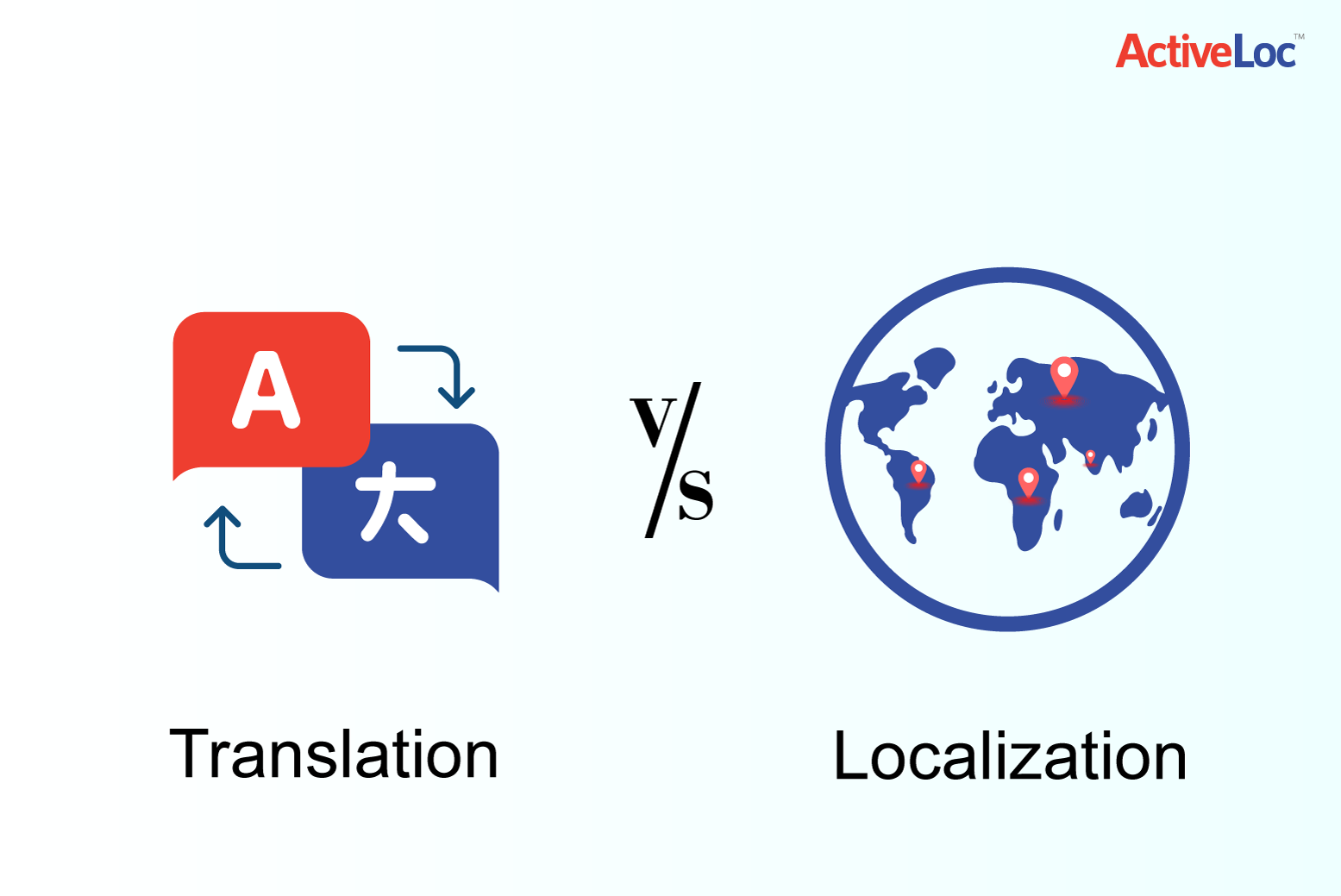When a company requires translation for a product or service you do a little research which leads you to confusion between “translation” and “localization”. If your confusion-research end up with this page, you are in the right place where you understand the difference between translation and localization. This blog will help you. So let’s dive into it.
The translation is the process of converting only content into other languages and is considered as just one part of the localization process. while localization adapts content to the local market.
In simple terms, Translation breaks language barriers. Whereas localization breaks cultural barriers.
When you are marketing to a global audience, you need language translation to put your best foot forward with global clients. So before you start any type of translation or localization project, it is essential to understand the difference between these two terms.
What is translation?
The translation is the process of converting your source language to a target language. The term translation, also known as tl8n or #xl8.
The translation is not just translating word by word it is also using the idioms and grammar of the target location to best convey the meaning and maintain the original source content. To assure accuracy, translation is generally evaluated by a combination of human linguists and Machine Translation (MT).
Translation is widely used for-
Some of the key points considered in the Translation project such as:
- Converting target language to maintain original source content
- Limited use of graphics.
- Limited use of idioms.
- Limited use of marketing content
What is localization?
Localization is a process of adapting entire product content to target locale. It considers the visual, cultural, emotional, and technological aspects. In the global market, localization has more wide-reaching.
Marketing strategy varies from country to country, to meet the public’s expectations need localization. Let’s flesh out some examples:
If you translate the old KFC tagline, “finger linkin’ good.” in English to mandarin it becomes this meaning: “eat your fingers off”.
When content is translated, it maintains original content but differs in meaning from place to place. look at here the second example:
Coca-Cola came up with a new name and a local marketing strategy. Yes in China, change the product’s name to ‘kekou kele’ to maintain the brand’s voice and conquer the market.
And also take another example, KitKat brand, when they launched their product in Japan. They change the product’s name to ‘Kitto Katsu’, which means ‘You will surely win’.
Localization involves a cultural approach. If your product wants to reach your audience effectively in each region, you need to consider which location you’re targeting. Because the same language is spoken in several regions. For example, Spanish in Spain is different from Spanish in Mexico or Argentina same applies to English and French etc.
Localization is widely used for :
To succeed in a new global market, especially in the ad campaigns, software, products, or entertainment field localization is a must.
- Converting currencies, time, dates, and formats, and telephone numbers in the target location
- Product content and reviews
- For E-commerce site: Elements like cart and payment flows
- Currencies, Unit measurement, weights, and geographical references.
- Considering social media and SEO match local conventions
- Website links, URLs, and structure based on the target location.
- Local flavor: slang and idioms.
- Considering Social values, & Cultural differences such as humor, myths, beliefs, relationships, etc
- Text direction.
- Adaption of technical content
- Optimizing page layout to fit the translated text
- Modified graphics, images, Icons, Shapes, sizes, styles, and colors for cultural appropriateness.
Localization simply don’t translate your website or app, It reshapes your project. so that your target audience feels as if you’ve built the product, especially for them.
Benefits Of Translation and Localization:
- Increase the number of users
- Boost engagement
- Boost user experience
- Enhances global reach
- Beat the competition
- Brand visibility
- Wider market
- Increase revenue
Which is better for your project : Learn more
Using free machine translations can lead to misunderstandings and confusion with your audience, which directly affects your sales. If you want to increase your sales, you need to tailor your marketing to meet local audience expectations. As we discussed, if your project is related to medical documents, or any technical publications, scientific journals, or literature you can choose translation services. Or if your project is related to any videos, websites, software, or apps kind of project you need to adapt your product with the localization method. Once you decided on the service that you need, you can hire a skilled professional translation agency with expertise. Still not sure how to start your next project? Contact our team expert. They will help you.
Mail : [email protected]
Ph : +91 6361045174
